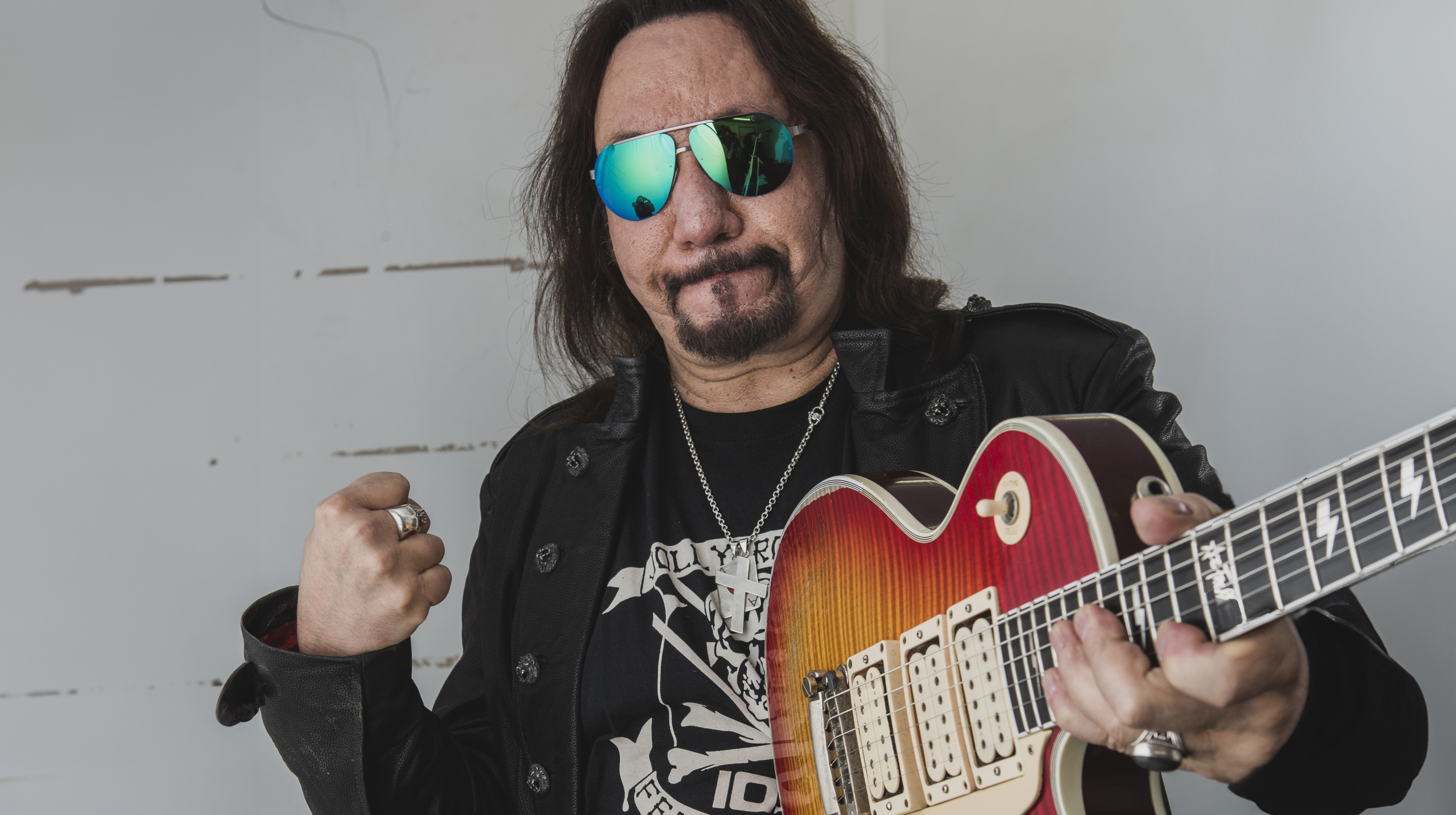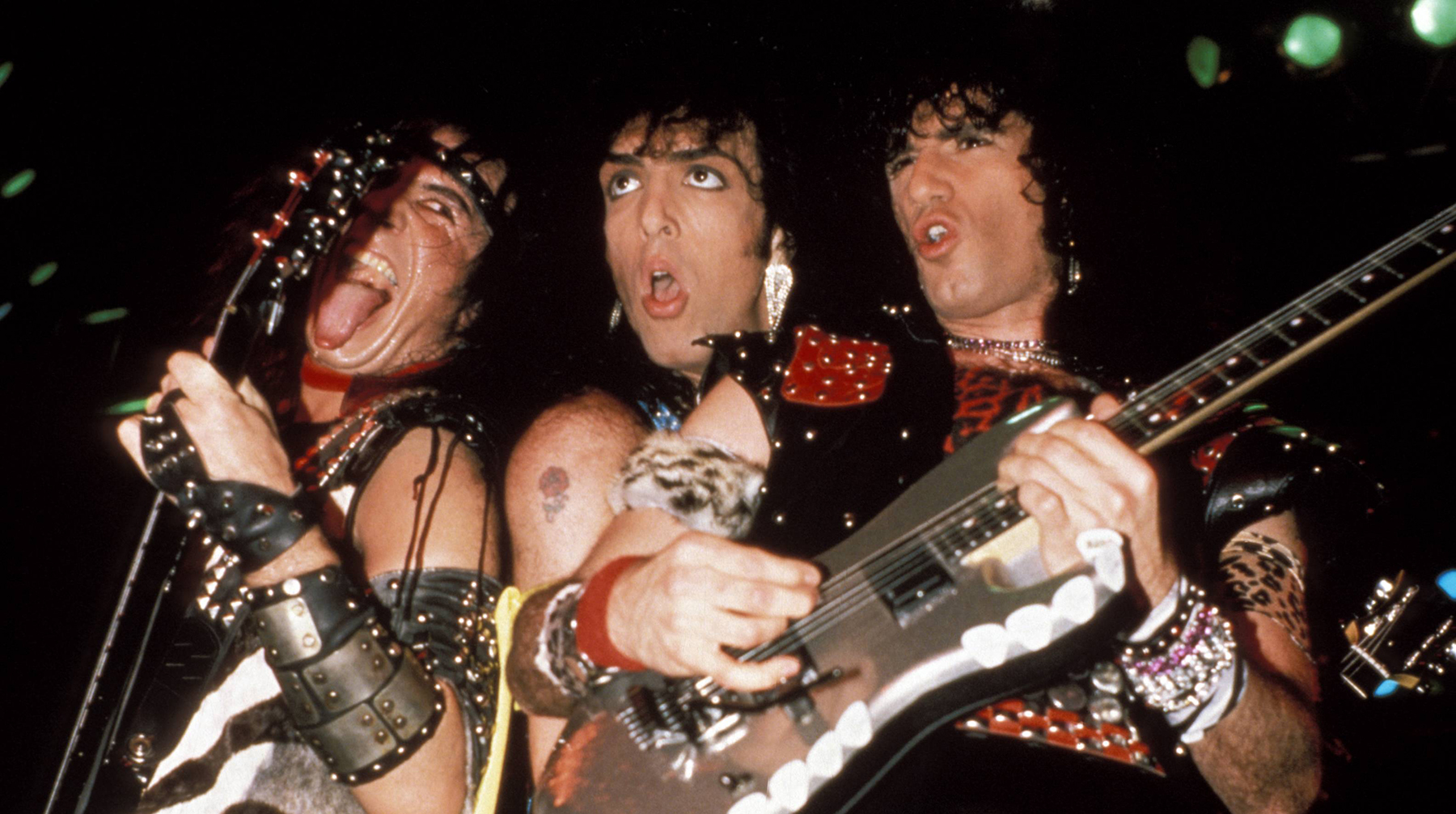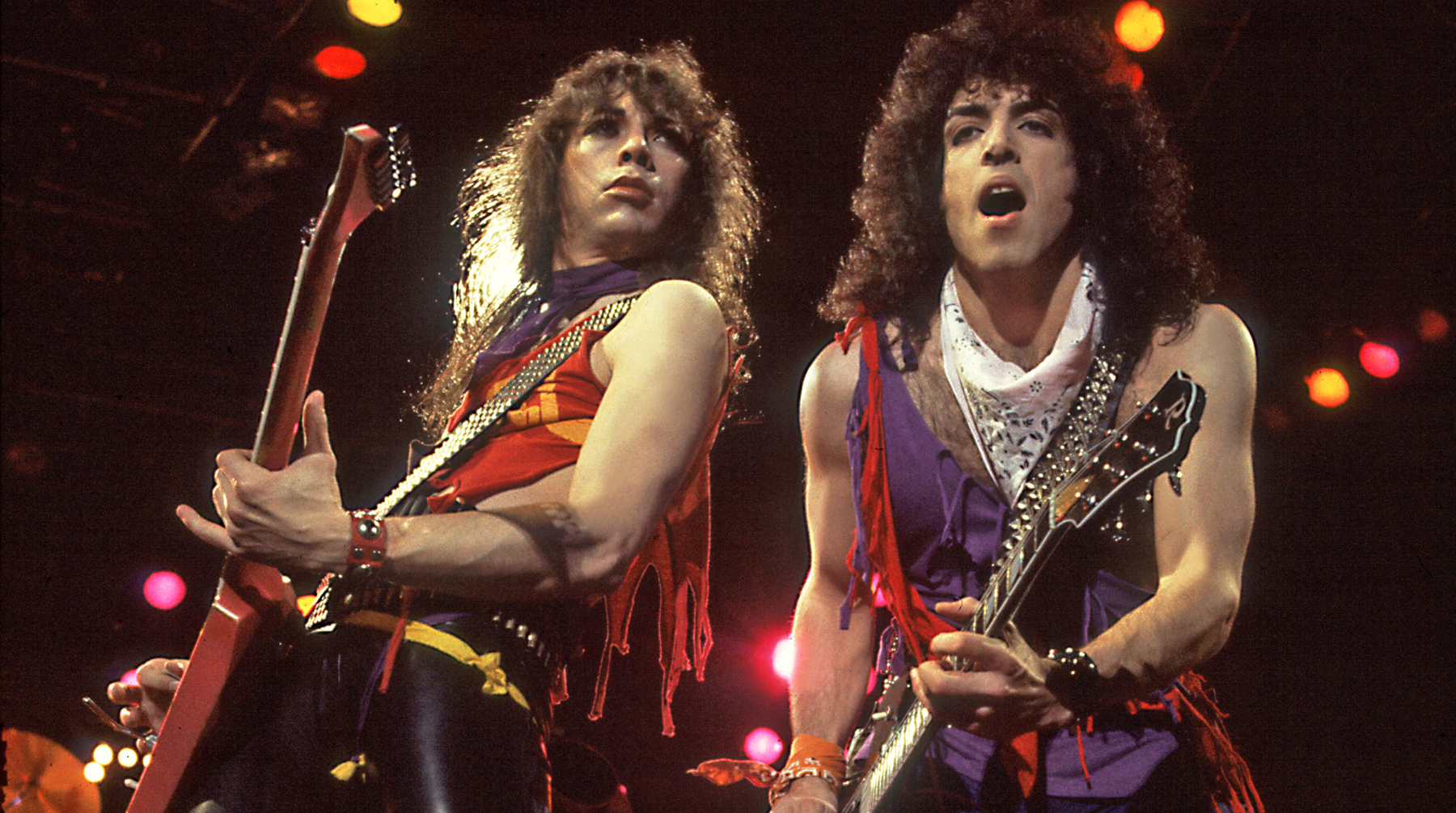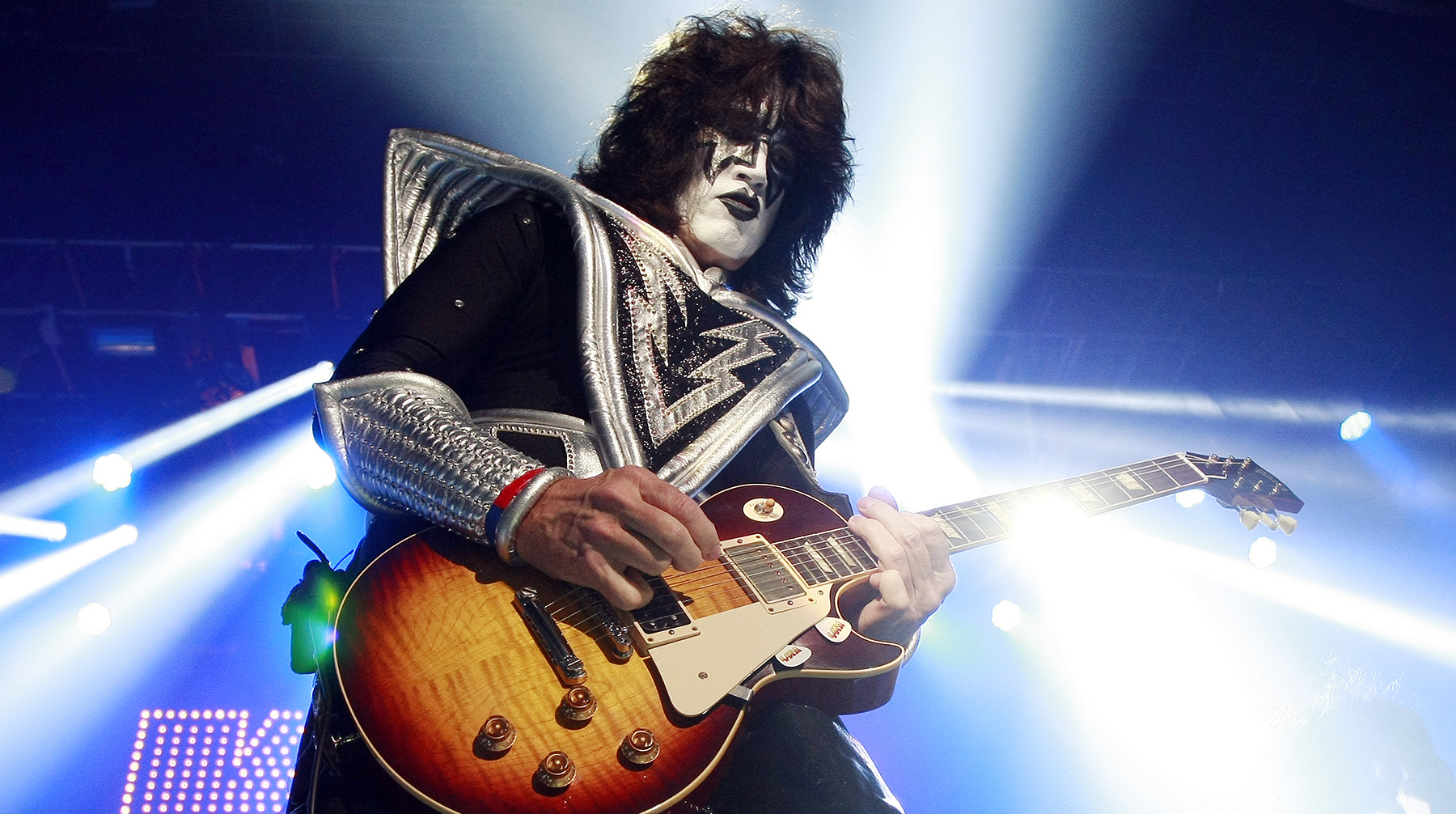“I didn’t realize how short he was!” The late Ace Frehley always spoke his mind. And when it came to his Kiss replacements Bruce Kulick, Vinnie Vincent and Tommy Thayer, the Space Ace had plenty to say
As the quintessential Kiss guitarist, Ace knew he was a tough act to follow

All the latest guitar news, interviews, lessons, reviews, deals and more, direct to your inbox!
You are now subscribed
Your newsletter sign-up was successful
Ace Frehley didn’t just play guitar in Kiss. He didn’t just write songs and sing either. He poured himself into the gig, with a personality and style that was too big for his Space Ace costume to contain.
His off-kilter, truly idiosyncratic guitar approach defined Kiss’s early six-stringed sound. Classic cuts like “Deuce,” “Cold Gin,” “Detroit Rock City," “Love Gun” and — his signature tune — “Shock Me” could have never happened without the Space Ace.
But Frehley — who died on October 16 following a fall at his studio — was too big for Kiss to contain. His tenure lasted from 1973 through 1982 and again from 1996 through 2002. During his absence a handful of guitarists filled in — including Bruce Kulick, Vinnie Vincent and Tommy Thayer — but none could take his place.
It goes without saying that Frehley — an admittedly unschooled musician who leans heavily into vibe and balls-to-the-wall cock rock — is a different animal than those who came after him. For one thing, he's been the most influential lead guitarist in the group by far, with fans that range from Kim Thayil to John 5. “I’d probably have practiced a little more If I knew I was going to affect that many people’s lives,” Ace told us recently when discussing five classic Kiss tracks. “It does make me proud and very happy though that I influenced a lot of great guitar players."
It goes without saying that when it comes to quintessential Kiss guitar theatrics, the buck kinda, sorta stops with Ace. But where does that leave Vinnie, Bruce, and Tommy? We'll let Ace tell you himself.
Bruce Kulick

“I would say that Bruce was the best guitar player all around. He’s technically a better player than I am, in my opinion. He can play stuff that I can’t play. He’s just a technically better musician. I never took a guitar lesson, you know? But when it comes to playing melodic guitar solos, you know that nobody is better than me!
“A lot of that has to do with how you hit the string with the guitar pick and hitting the string with your finger at the same time. That’s how you get the harmonics. A lot of musicians aren’t even able to hit that. It takes a while to learn that technique with a really good vibrato—but it’s a winning combination.
All the latest guitar news, interviews, lessons, reviews, deals and more, direct to your inbox!
“I know Bruce admires me as a musician and vice versa. We’ve jammed together at a couple of conventions—but it hasn’t really gone any further than that. Well, I mean… on my last Origins record [Volume 2], he played on a Hendrix song, ‘Manic Depression.’ We traded off solos, but it was done remotely with Pro Tools.”
Vinnie Vincent

“Vinnie Vincent played too fast. I never paid much attention to him as far as anything else. I know that Paul [Stanley] used to complain to me about Vinnie. He said that he was like a loose cannon, and that he doubled the length of the guitar solo, and that he played things too fast, and they couldn’t control him, you know?
“But I was really amazed… I hadn’t met him over the years. The first time I met him was a few years ago in Florida — and I didn’t realize how short he was. [laughs] I was really like towering over him! But the problem with shredding is that it’s not memorable, you know? When you put 64 notes in a bar or two bars, you don’t know what the guy is playing. I mean… not everybody can do that, but I’m more into melody.”
Tommy Thayer

“Tommy played the right notes, but he didn’t have the right swagger. He just doesn’t have my same technique. For example, my father was an excellent pianist. He could play Beethoven, Chopin, and everything. He would always say to me, ‘It’s not so much playing the right notes; it’s how hard you hit it and how to use the pedals below the piano. It’s all in the technique!
“I never forgot that. And because my father had a very light touch, and he had excellent technique, I took that and transferred it to the electric guitar, and my focus toward it. So, for me, it’s not just about hitting the right notes but doing it with style. You know — my style.
“But it is true that Tommy had to show me some of those old parts when I came back for the reunion. You’ve got to realize that there’s songs that Paul and Gene [Simmons] wanted me to perform that I hadn’t played in 10 or 15 years. Tommy’s like an encyclopedia, and he knows how to play the right notes.
“But Tommy was funny. When I played certain solos, I played them at a different position on the neck than he thought I did. He would go, ‘Wow, that’s surprising!’ I’d go, ‘Well, Tommy, I’m just not a schooled musician, so I play things where I feel like playing them!’ And it surprised him because he thought I’d played them at a different position on the neck.
“As it turned out, he wasn’t playing them correctly, either. I thought it was funny, and so did he.” [laughs]
Andrew Daly is an iced-coffee-addicted, oddball Telecaster-playing, alfredo pasta-loving journalist from Long Island, NY, who, in addition to being a contributing writer for Guitar World, scribes for Rock Candy, Bass Player, Total Guitar, and Classic Rock History. Andrew has interviewed favorites like Ace Frehley, Johnny Marr, Vito Bratta, Bruce Kulick, Joe Perry, Brad Whitford, Rich Robinson, and Paul Stanley, while his all-time favorite (rhythm player), Keith Richards, continues to elude him.
